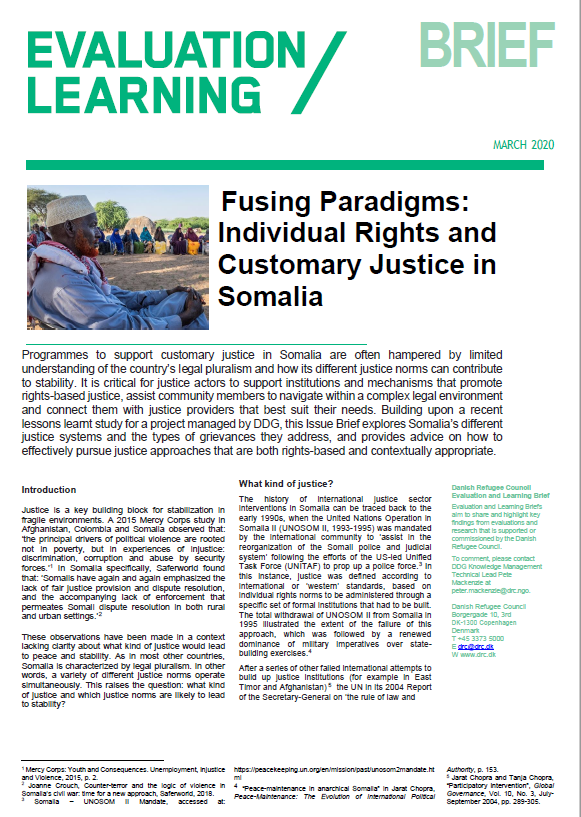Justice is a key building block for stabilization in fragile environments. Discontent around access to justice observed in previous security and justice studies of Somalia, and the existence of legal pluralism raise the question: what kind of justice and which justice norms are likely to lead to stability in the Somali context?
Limited understanding of legal pluralism in the Somali context and the contribution of different justice norms hamper customary justice programmes. It is critical for justice actors to support institutions and mechanisms that promote rights-based justice, assist community members to navigate within a complex legal environment and connect them with justice providers that best suit their needs.
Building upon a recent lessons learnt study for a security and justice project managed by DDG, this brief explores Somalia’s different justice systems and the types of grievances they address, and provides advice on how to effectively pursue justice approaches that are both rights-based and contextually appropriate.
The series in which this brief is a part, aims to share and highlight key findings from evaluations and research that is supported or commissioned by the Danish Refugee Council.

